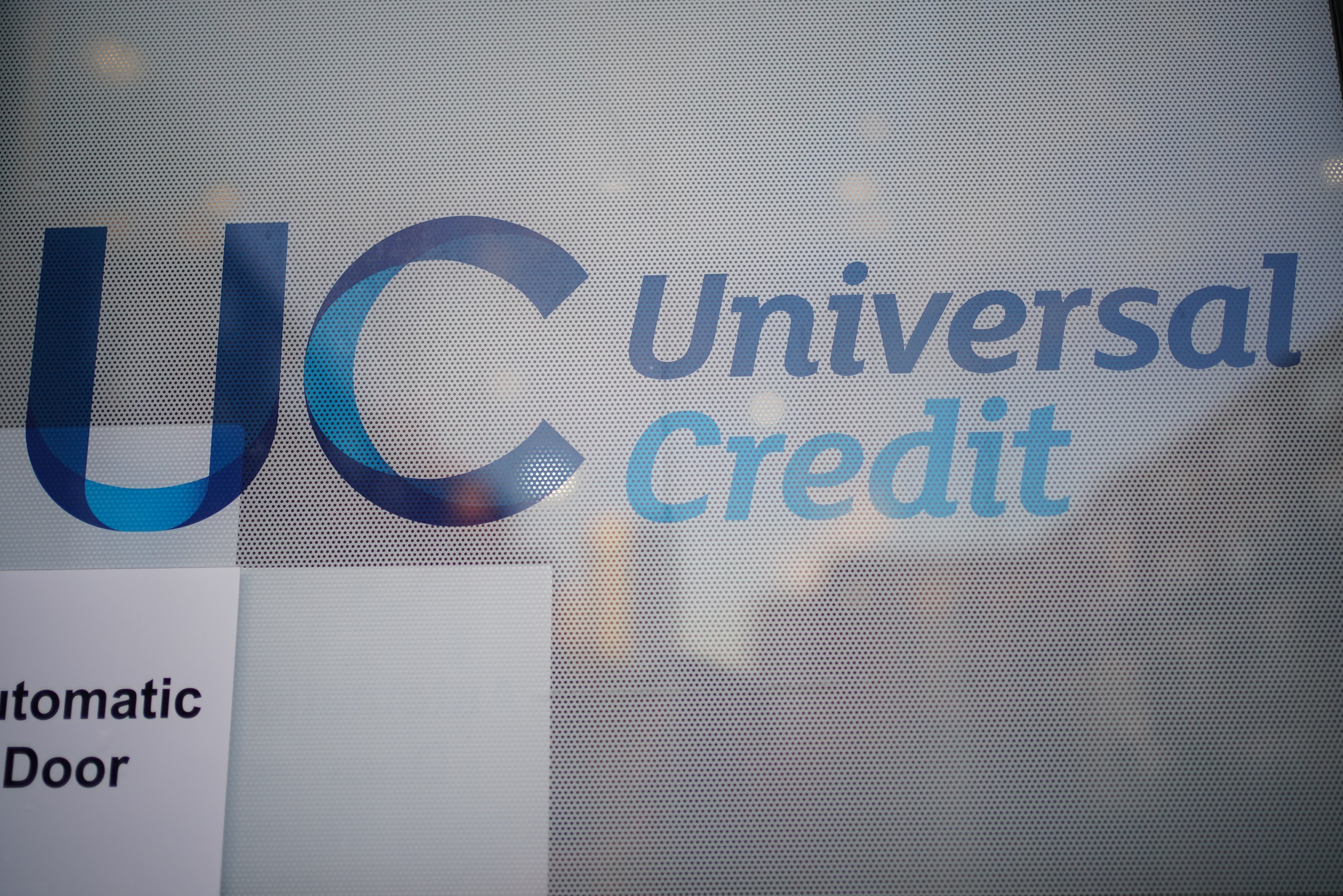Legitimate claimants asked to pay Universal Credit cash back, claims charity
The Child Poverty Action Group said some people who did not supply ID evidence had claims closed and received demands to repay ‘overpayments’.

Your support helps us to tell the story
From reproductive rights to climate change to Big Tech, The Independent is on the ground when the story is developing. Whether it's investigating the financials of Elon Musk's pro-Trump PAC or producing our latest documentary, 'The A Word', which shines a light on the American women fighting for reproductive rights, we know how important it is to parse out the facts from the messaging.
At such a critical moment in US history, we need reporters on the ground. Your donation allows us to keep sending journalists to speak to both sides of the story.
The Independent is trusted by Americans across the entire political spectrum. And unlike many other quality news outlets, we choose not to lock Americans out of our reporting and analysis with paywalls. We believe quality journalism should be available to everyone, paid for by those who can afford it.
Your support makes all the difference.Some Universal Credit claimants have been told they must pay money they were entitled to back because they have been unable to comply with requests to verify their details, according to a charity.
The Child Poverty Action Group (CPAG) said the issue relates to people who claimed early on in the coronavirus pandemic when face-to-face identity checks were suspended.
It appears there has been an assumption that people’s failures to respond to later requests for evidence meant they were not entitled to Universal Credit when they had claimed, leading claims to be terminated and repayments to be sought, the charity said.
It said some claimants who did not supply ID evidence when asked to do so had their claims closed and received demands to repay “overpayments”.
In some cases, the Department for Work and Pensions (DWP) has arranged attachment of earnings orders with employers so that the money is automatically recovered in instalments, the CPAG added.
Despite making legitimate claims for Universal Credit over 18 months ago, people have now received financially devastating debt notices simply because they haven't been able to comply with requests to verify their details quickly
Claire Hall, a solicitor at the charity, said: “Just as families are getting back on their feet, many of those who lost their jobs when the pandemic first hit are being put through a second ordeal by the DWP.
“Despite making legitimate claims for Universal Credit over 18 months ago, people have now received financially devastating debt notices simply because they haven’t been able to comply with requests to verify their details quickly.
“Families will only be able to rest easy if DWP urgently reviews all the cases where they have issued an overpayment notice for not providing evidence, and suspends collection of these supposed debts until they have done so.”
In one case seen by the charity, a claimant phoned the DWP to offer the requested ID evidence after receiving notice of an overpayment of more than £13,000 but was told his award had been stopped and he would have to go through an internal review.
After the charity became involved, it said the overpayment notice was revised, effectively confirming the claimant’s entitlement to the money, and the Universal Credit claim was reopened.
The charity said the claimant had not responded to the DWP’s attempts to contact him and had missed a phone appointment because he had suffered a close family bereavement and had himself contracted coronavirus.
It is also aware of other cases, including one where a graduate who claimed Universal Credit for a short period last year received an overpayment decision this year because in December 2020 he had apparently failed to provide requested identification. As he was not entitled to Universal Credit at the time, he had not looked at the apparent request, the charity said.
The DWP adapted its ID verification approach during the pandemic in part to allow it to administer a significant increase in claims.
A DWP spokesperson said: “At the onset of the pandemic we suspended certain verification processes as we could no longer see customers face-to-face, making customers aware that we may return to seek this verification in the future.
“Those who can prove entitlement in a reasonable timeframe will not be asked to repay any money. We have a responsibility to the taxpayer to ensure public money is properly spent. Therefore it is right and lawful that we seek to recover payments that claimants were not entitled to.
“We have been unable to verify the details of these case studies as we have not been provided with the required information. We can do so if this is provided.”